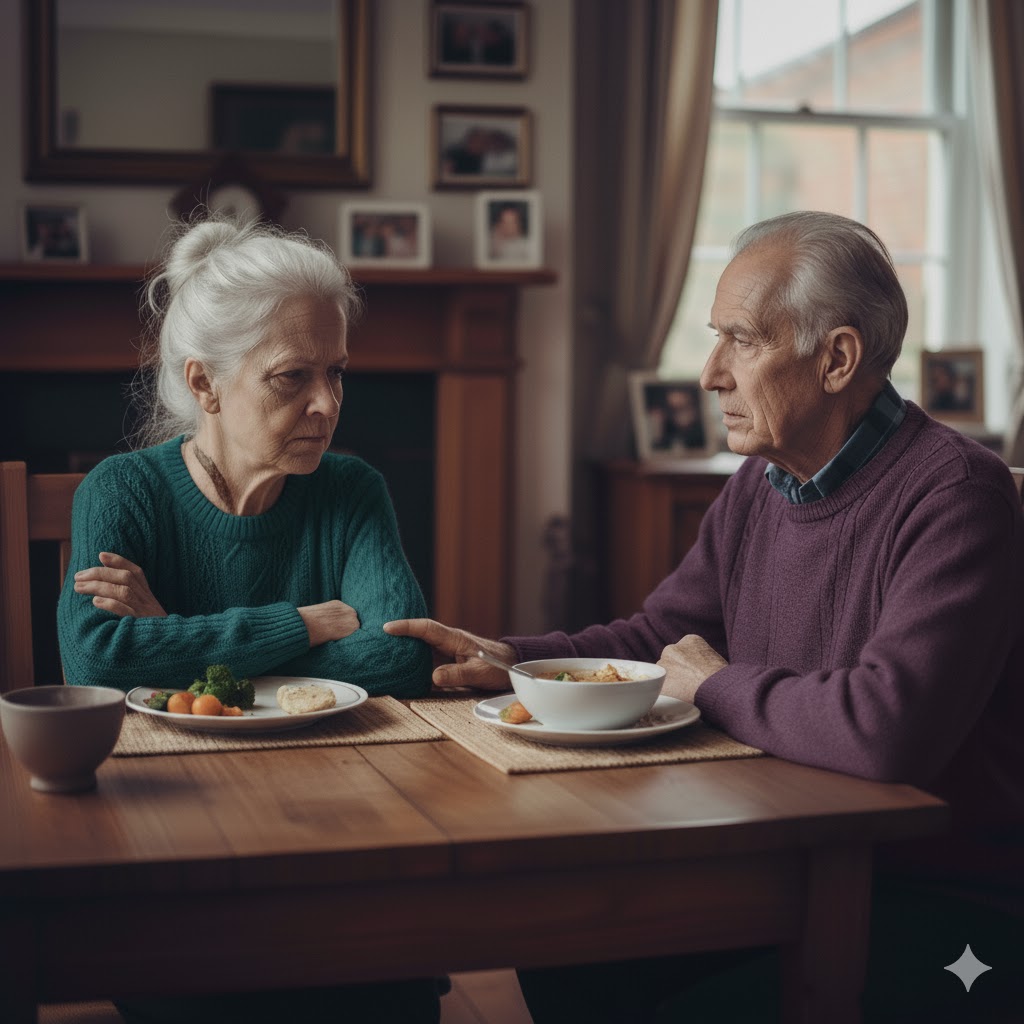Caregiver Wisdom
I’ve been married to my wife for almost thirty years, and for all of them, I’ve been the cook—by choice, not default. Gail’s a fine cook herself, but she follows recipes. I improvise. For me, cooking has always been play and ritual rolled into one. Even when life was busy, we made time for dinner together—and most likely a cocktail before dinner too.
For years, that rhythm defined our evenings. I’d hand her a drink, light the grill, and we’d sit outside watching the light shift on the river. Dinner wasn’t just food. It was punctuation—our way of saying we’re still us.
But as her dementia progressed, Gail grew less interested in food. At first, I took her at her word when she said, “I’m just not hungry.” I didn’t yet understand that the issue wasn’t appetite—it was everything wrapped around the act of eating. The setup. The choices. The invisible sequence her mind could no longer follow.
What I eventually learned—through experience and through the work on Atenda—is that saying “I’m not hungry” often means something else. It can mean I’m overwhelmed. The table needs clearing, the plates need choosing, the silverware has to match the meal—and her brain simply didn’t want to choreograph that dance anymore.
So I stopped asking, What do you want for dinner? and started saying, We’re having chicken tonight. I laid out the plates, the knives, the napkins, removing one step from the setting of the table—quietly removing decisions that had become hurdles. I’d still make enough for both of us, even when she insisted she didn’t want any. I’d ask her just to sit with me, and often she’d end up eating anyway..
That’s when I realized the question wasn’t whether she was eating—it was whether we were connecting. The meal wasn’t the point. The moment was.
I’ve also learned to ask myself the same question I ask other caregivers: Who has the problem? If your loved one is healthy, not losing weight, and not distressed, maybe food isn’t their problem. Maybe it’s ours—missing the companionship that mealtime once brought.
Now our dinners are quieter. Sometimes it’s just a small plate, sometimes just company. But when she sits beside me, even if she barely eats, I still feel we’re sharing something sacred—the ordinary made precious.
Takeaway: Don’t measure love in bites or calories. Measure it in moments shared across a table, no matter how small the meal.
—Gregg
If this resonates, share it with another caregiver. And if you would like a companion that listens and remembers, visit Atenda.Care.


